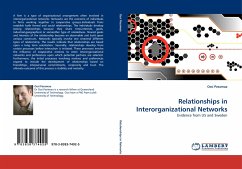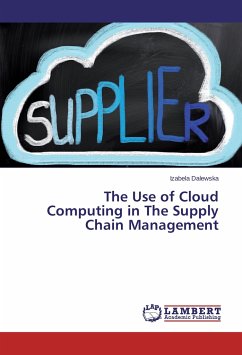In the last two decades, an increasing amount of attention has been paid by practitioners as well as academics to Interorganizational Information Systems (IOS) use within Supply Chains. However, our understanding of the factors that affect IOS use success is hardly complete. Based on the socio-technical approach and the resource-based view, we propose that the climate of Interorganizational relationships could be a condition to the impact of IOS on supply chain performance. We tested our model in the automotive components supply chain in the Tunisian context. The research model includes two major causal relations, namely: (1) a direct relation linking IOS use with Supply chain performance (IOS success) and (2) a moderating relation linking the IOS use with IORs attributes
Bitte wählen Sie Ihr Anliegen aus.
Rechnungen
Retourenschein anfordern
Bestellstatus
Storno








